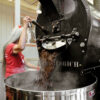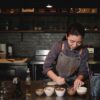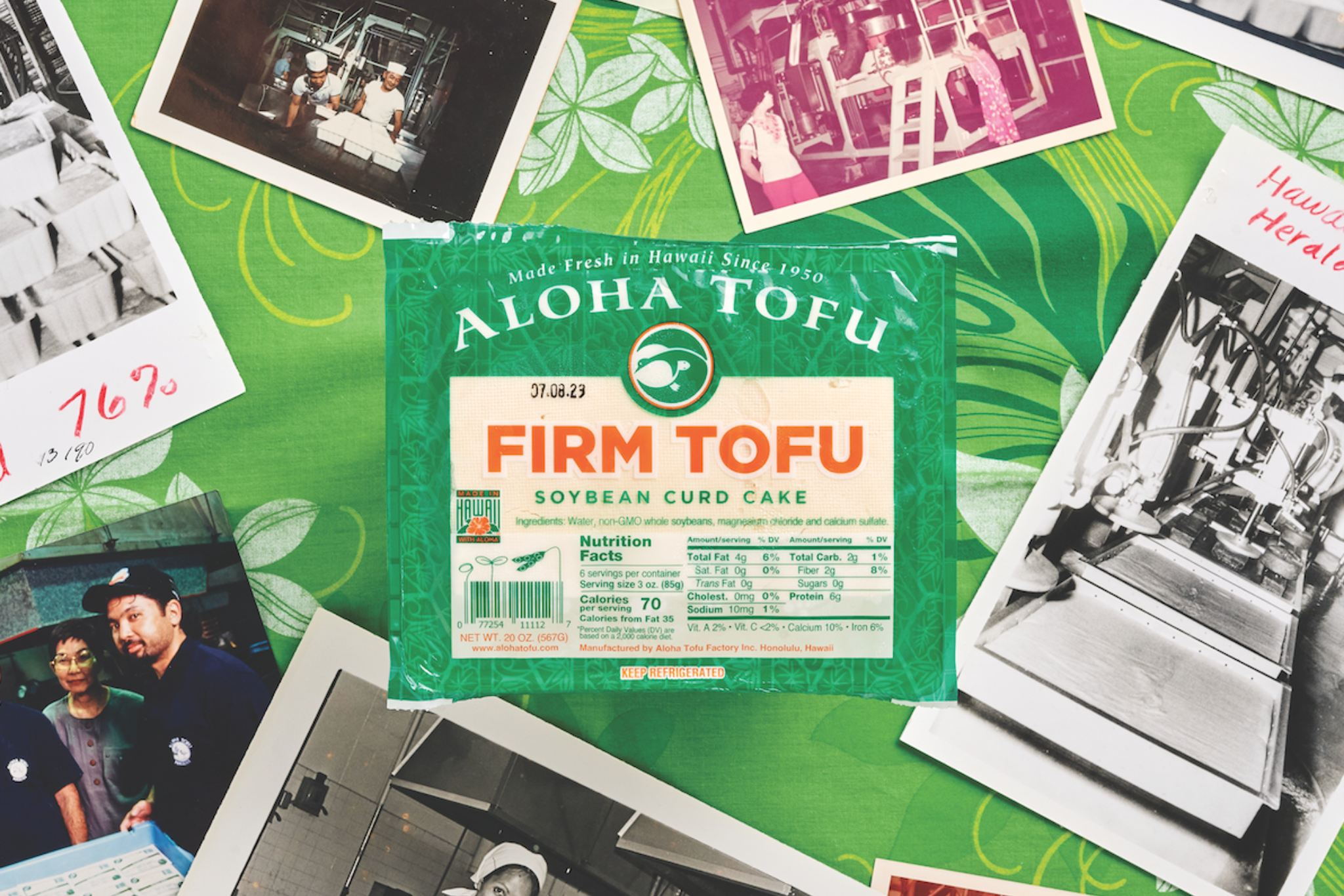Text by Kathleen Wong
Images by Chris Rohrer
Some of Paul Uyehara’s earliest memories are of his grandmother grabbing aburage, or deep-fried tofu, straight from the fryer. Unphased by the piping hot skin, she would tear off a corner of the crispy exterior, dribble shoyu inside, and offer one to him as its spongy crevices absorbed the salty sauce. “You can put it in an air fryer, but it’s not quite the same,” says Uyehara of the distinct satisfaction of sampling aburage before it even leaves the factory.
As the third-generation owner of Aloha Tofu Factory, he, his sister, and cousins are some of the lucky few to have been raised on freshly fried aburage. The company is among just a handful of tofu makers left in the islands—and the only one that produces the fried specialty item.

Aloha Tofu continues to provide the islands with fresh tofu and soy products after nearly 75 years, a legacy that began when Uyehara’s grandparents took over the factory from a friend and fellow Okinawan immigrant in 1950. Though the couple had no background in tofu-making, they kept the company going through thick and thin, eventually handing it over to Uyehara’s father, who operated it alongside his siblings for decades.
It wasn’t Uyehara’s plan to follow in their footsteps. Only in high school did he begin to truly appreciate how the company enabled his parents and grandparents to provide for their family. Uyehara promised himself that if no one else in his generation stepped in to take over the business, he would. After a stint teaching English in Asia, he returned to Hawai‘i to help out at the factory and eventually took the reins as president in 2004.
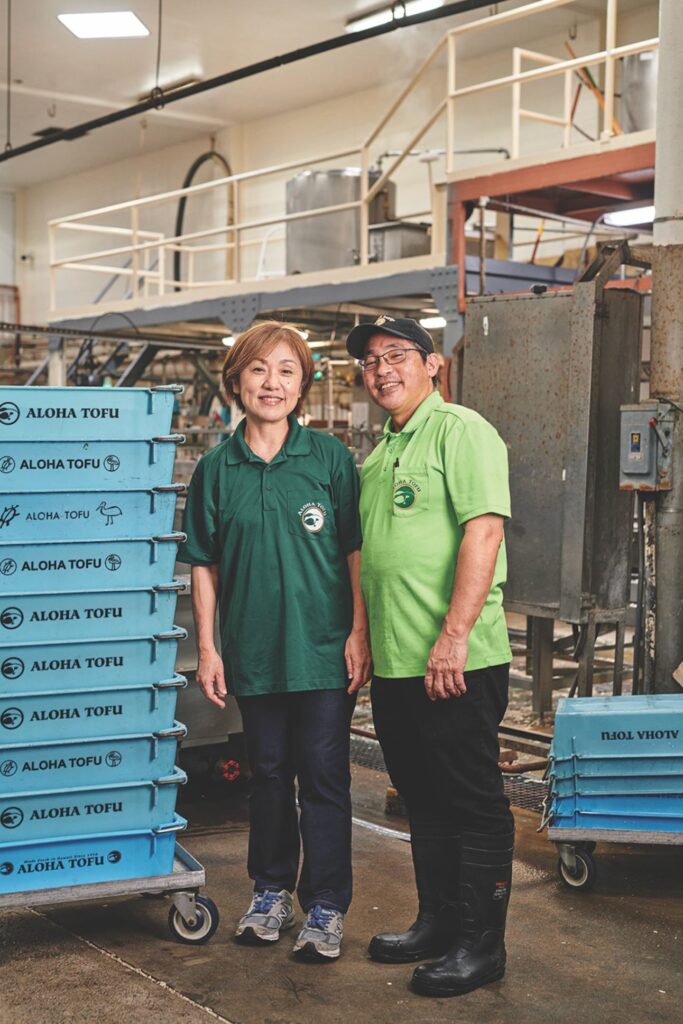
Today the company is the largest tofu manufacturer in the islands, producing up to 5,000 blocks of firm, soft, and aburage tofu in its 25,000-square-foot factory on any given day. But it’s all still made using old-fashioned, labor-intensive production methods that give the tofu its silky texture and fresh taste. Other soy products are produced here too, including smooth, creamy soy milk and natto fermented for more than 20 hours to yield a subtle flavor.
On days when production is in full swing, the factory is abuzz with workers mixing giant vats of milky white soybean curds and slicing massive slabs of tofu in smooth, swift strokes. Rectangles of firm tofu bob along the surface of long, shallow cooling tanks like buoys, waiting to be packaged. Then there’s the enticing scent of fried tofu, stirring the appetite.
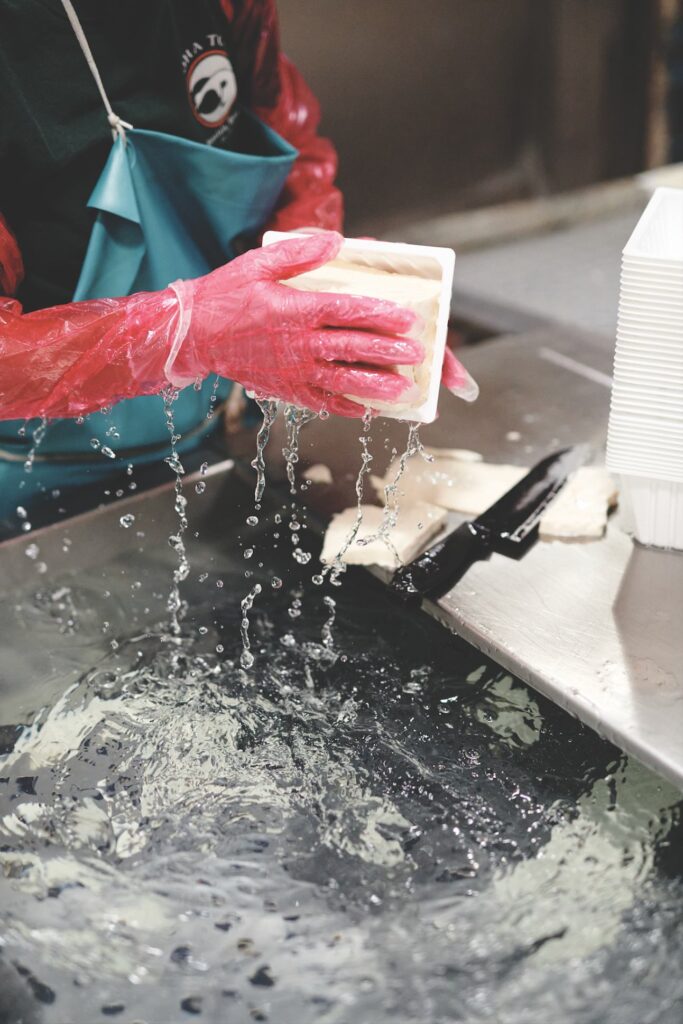
Free of preservatives, the company’s tofu is made with just three ingredients: water, soybeans, and nigari, a coagulant it sources locally from a salt farm, Kona Sea Salt, on Hawai‘i Island. However that isn’t the only local ingredient at the heart of Aloha Tofu’s ongoing success.
Through the years, Aloha Tofu has stood an enduring tale of community, with a state-wide network of restaurants, supermarkets, and hotels that choose to purchase from the small, locally owned business. Families, too, swing by the factory storefront—an unassuming entrance off a narrow side street in Kalihi—for their fix of the company’s fresh, locally made tofu; some have been placing weekly orders for generations.
While many Hawai‘i businesses suffered devastating economic losses from the COVID-19 pandemic, Aloha Tofu’s sales dropped just 8 percent, something Uyehara attributes to its loyal customers, distributors, and partners. “The thing I like about Hawai‘i people is they try to support each other,” he says. “My suppliers said, ‘If you’re late [paying] me, that’s fine, we can figure it out.’”
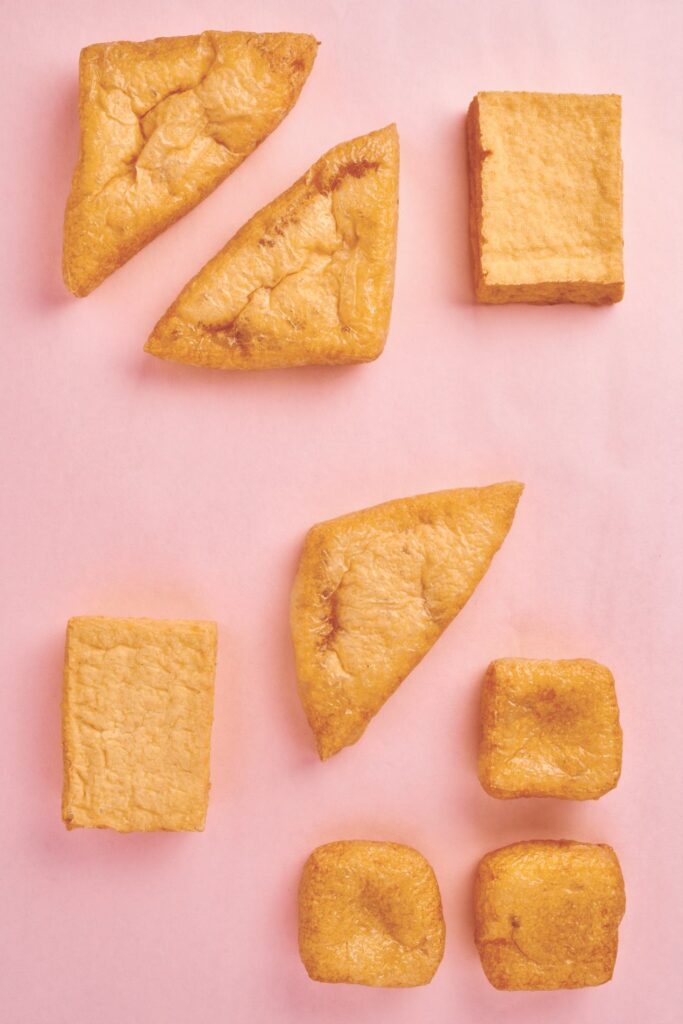
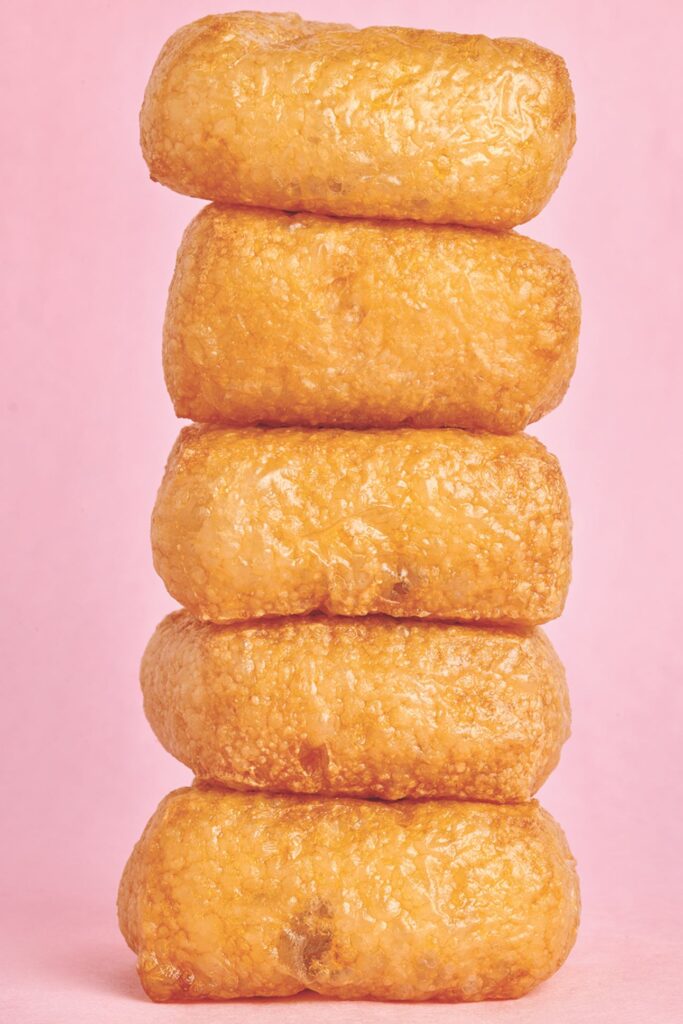
When a fire wiped out the original factory in the mid-1960s, fellow Okinawan-owned tofu maker A‘ala Tofu allowed Uyehara’s grandfather to use its factory for a whole year. Without that act of goodwill, Uyehara believes Aloha Tofu wouldn’t have survived. “It was another amazing example of community,” he says.
Although his sons aren’t interested in joining the family business, Uyehara knows that won’t be the end of Aloha Tofu. “We’ve been part of the community for 75 years,” he says, and regardless of who carries that legacy forward, “we think it’s important to continue to have a fresh product manufactured in Hawai‘i.”


